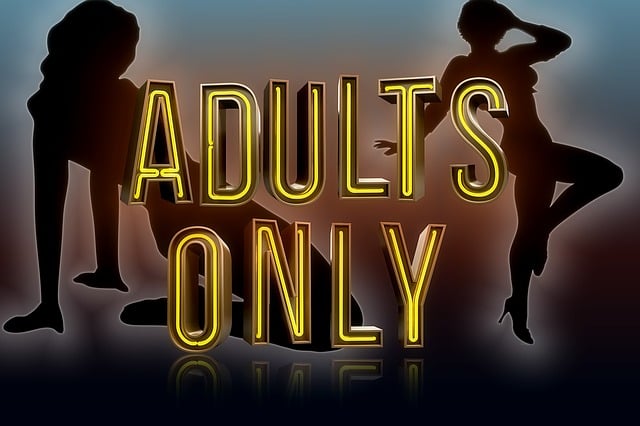Share This Article:

Tumwater, WA (WorkersCompensation.com) – The Washington State Department of Labor and Industries (L&I) announced this week it has put rules in place to make workplaces safer for adult workers.
The rules that go into effect on Jan. 2, are the result of the “Strippers’ Bill of Rights” law that was signed into law in March that expands safety requirements and financial protections for adult entertainers, officials said. The safety improvements will allow entertainers to have more protections in areas where they are alone with customers, and to prevent entry of customers into areas where they aren’t supposed to be.
The Strippers’ Bill of Rights grew out of a movement spearheaded by a dancer-led organization called “Strippers are Workers” that worked to empower dancers in Washington state so they could “strip safely, positively and lucratively.” Established in 2018, the group called for greater regulation of the adult entertainment industry in Washington, which resulted in legislation being passed in 2024.
That bill mandated reform in the adult entertainment establishments to ensure physical safety for the workers, as well as validation to the dancers that they are employees who deserve respect, autonomy and a safe workplace.
“It’s pretty simple why we are passing this bill,” Washington Gov. Jay Inslee said during a press conference in March. “These are working folks – and working people deserve safety in the environment in which they work.”
The bill repealed the prohibition of alcohol sales in strip clubs. Advocates argued that prohibiting alcohol sales limited dancers’ revenue, and put pressure on them to engage with customers, which put them in more danger. Many times, adult work advocates said, customers would come to the clubs already intoxicated or were known to be violent. Allowing strip clubs to apply for alcohol licenses helped them to prevent abuse of dancers, and afford more security and safety protections for dancers and other employees.
The stronger requirements include protective systems, including installing and maintaining accessible panic buttons in bathrooms, dressing rooms and other rooms where entertainers could be alone with customers. Additionally, it requires keypad entry codes on dressing and locker room doors to keep entertainers safe.
Additionally, the bill calls for clubs to have dedicated security guards on the premises during operating hours. Clubs must also maintain a list of problematic customers who have allegedly committed sex trafficking, prostitution, promotion of prostitution and/or acts of violence against entertainers and to ban those customers from the establishment for three years.
Lastly, the bill requires clubs to train other employees on professional behavior to help them support adult entertainers and help them in times of conflict.
“Like any other worker in the state, adult entertainers deserve job-site safety and protection from unfair labor practices,” said Celeste Monahan, L&I assistant director for Fraud Prevention and Labor Standards. “These new rules make sure safety and a level playing field are the standard.”
The regulations also eliminate unfair financial systems that previously held adult entertainers responsible for most of the club’s fees. Those changes allow workers to keep their tips and gratuities, and not be required to disclose the amounts to the clubs. The rules would also improve complaint processes to ensure the complaints are investigated, and make it easier for workers to engage with L&I.
"Strippers are workers, and they should be given the same rights and protections as any other labor force," bill sponsor Washington state Sen. Rebecca Saldaña of Seattle, said in a statement. "If they are employed at a legal establishment in Washington, they deserve the safeguards that every worker is entitled to, including protection from exploitation, trafficking, and abuse."
Only one other state has worker protections for adult entertainers. Illinois passed legislation in 2019 that required adult entertainment establishments, and other businesses, to have a written policy for sexual harassment.
In May, Florida Gov. Ron DeSantis signed legislation that would prevent individuals under 21 from working at adult establishments, as a protection measure. In other U.S. cities, exotic dancers have tried to gain worker protections. In Portland, Ore., and in North Hollywood, Cal., dancers voted to unionize in 2023. Additionally, in Nevada, the state Supreme Court ruled in 2014 that adult dancers in one Las Vegas club were employees and not independent contractors, and therefore entitled to minimum wage and other protections.
AI california case management case management focus claims compensability compliance courts covid do you know the rule emotions exclusive remedy florida FMLA fraud glossary check Healthcare health care hr homeroom insurance insurers iowa leadership medical NCCI new jersey new york ohio osha pennsylvania roadmap Safety state info technology texas violence WDYT what do you think women's history women's history month workcompcollege workers' comp 101 workers' recovery Workplace Safety Workplace Violence
Read Also
- Apr 24, 2025
- Frank Ferreri
- Apr 24, 2025
- Liz Carey
About The Author
About The Author
-
Liz Carey
Liz Carey has worked as a writer, reporter and editor for nearly 25 years. First, as an investigative reporter for Gannett and later as the Vice President of a local Chamber of Commerce, Carey has covered everything from local government to the statehouse to the aerospace industry. Her work as a reporter, as well as her work in the community, have led her to become an advocate for the working poor, as well as the small business owner.
Read More
- Apr 24, 2025
- Frank Ferreri
- Apr 24, 2025
- Liz Carey
- Apr 24, 2025
- Claire Muselman
- Apr 24, 2025
- Chris Parker
- Apr 24, 2025
- Anne Llewellyn
- Apr 23, 2025
- Claire Muselman




